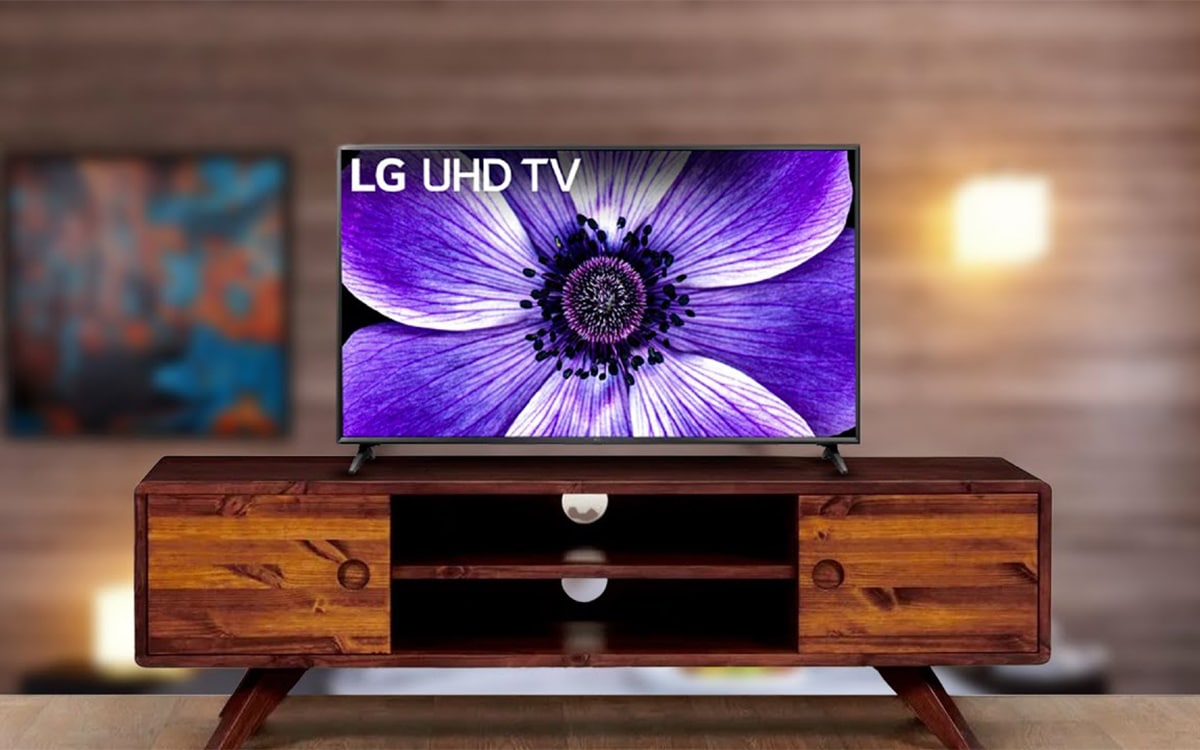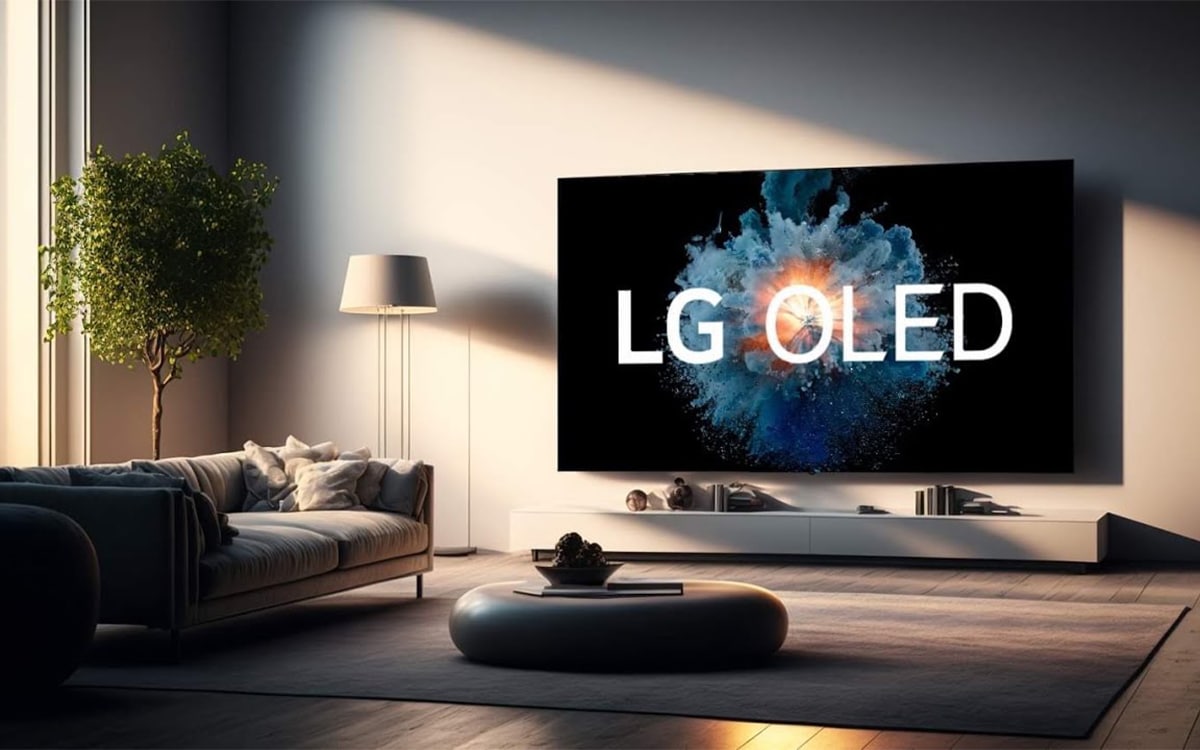In fact, LG is one of the leading names associated with OLED TVs, which are amongst some of the most popular TV types in the world, thanks to the unique benefits that they offer.
But of LG’s many display types, is OLED really the very best on the market? Which is better: LG OLED or LG UHD? Join us down below, because today we are going to dive deep into LG’s OLED TVs, to find out if they’re really worth all that hype!
What Is The Difference Between LG OLED And LG UHD?
Before we compare the two display types, it’s important for us to note that “UHD” does not refer to a specific model of LG TV. Instead, UHD refers to a specific resolution. The abbreviation stands for “Ultra High Definition”, and refers to TVs that boast 4K resolutions, or even 8K resolutions. UHD is a term used by countless TV manufacturers, and not just LG.
When we refer to LG UHD TVs from this point, we are simply referring to LG TVs that make use of LED display technology.
LG OLED TVs, on the other hand, are TVs that make use of OLED display technology to create high-resolution imagery. OLED displays are made up of millions of individual pixels that create their own light. This means that OLED displays do not need a backlight. This offers them a number of extra benefits. Let’s take a look at some ways the two TV types differ.
LG OLED is a unique TV display technology that makes use of self-illuminating pixels to create a sharp image. LG UHD TVs are simply 4K or 8K TVs that instead make use of an LED backlight.
Viewing Angles
When it comes to viewing content, LG OLED and LG UHD TVs both offer very different experiences. LG OLED TVs have much wider viewing angles, thanks to the self-illuminating pixels used on the screen. Because the pixels create their own light, it’s much easier to make out the image on screen even when viewing from an unpreferred angle.
LG UHD TVs, on the other hand commonly make use of LED backlights to make images on the screen more easily visible. The light created by LED backlights can usually only travel in a very specific direction. This means that the optimal viewing angle of such a TV is usually much narrower. If you’re not sitting dead ahead of an LG UHD TV, you may find that the image appears slightly dull!
Form Factor
Because LG OLED TVs are able to operate without any need for a backlight, they are able to be manufactured in much narrower forms. OLED TVs are also much more lightweight. This makes them perfect for people who are frequently moving from home to home.
Image Quality
Image quality is one of the key differences between LG OLED and LG UHD TVs. Though both display types are able to provide 4K and 8K resolutions, as well as HDR technologies, it’s worth noting that OLED TVs are able to create a much sharper image overall.
Each of the many pixels in an LG OLED display is able to turn off independently as needed. This means that OLED TVs are able to create true black values that aid in contrast. In darker scenes in your favourite films or games, you’ll be able to make out distinct shapes and stay on top of the action.
LG UHD TVs, on the other hand, may have more trouble with recreating true black values. This is because the LED backlight may allow a small amount of extra light to bleed through. This causes black values to instead appear as a very dull grey. Darker scenes in films and games may appear as a muddled array of dull greys on a standard UHD TV.
If you really cherish clarity and sharpness above all else, then an LG OLED TV would be a much smarter investment than a standard LG UHD TV. OLED can help create pixel-perfect contrast in your content!

Which Is Better?
At this point, it’s clear to see that LG OLED TVs stand out massively in comparison to more standard LG UHD TVs. The technology used in OLED TVs allows these screens to create perfect contrast in an image. Individual pixels can turn off to create life-like black values that help to make other colours pop much more.
If you want your favourite content to look better than it ever has done, then we strongly recommend going for an LG OLED TV!
Frequently Asked Questions
Which Is Better LG OLED Or LG UHD?
“UHD” simply refers to a resolution of 4K or higher that can be achieved by most LG TVs. OLED, instead, refers to a type of display that makes use of self-lighting pixels to create the image on screen. In most ways, OLED TVs offer much greater image clarity and contrast, when compared to other UHD screens.
Is UHD TV Worth Buying?
UHD is a term used to describe resolutions like 4K and 8K. When you consider how much content is now produced with 4K resolutions in mind, it’s very much worth investing in a UHD TV. You can easily future-proof your entertainment world by investing in a UHD TV for your living room!
What Is The Disadvantage Of UHD?
The biggest drawback behind UHD TVs is their often inflated prices. UHD TVs are still very much a novelty for many. This means they are often sold for much higher prices. However, prices of 4K TVs are very slowly falling as the technology becomes more accessible to the masses. It’s likely that 4K TV prices will continue to steadily fall!
Does Netflix Use UHD?
If you’re a Netflix user with access to a 4K TV, you can rest assured that you can stream at resolutions to match! To access UHD streaming on Netflix, all you need is a premium membership for an extra cost, a compatible display, and a strong enough internet connection! Netflix will automatically present in UHD once you have met all of these criteria.






0 Comments